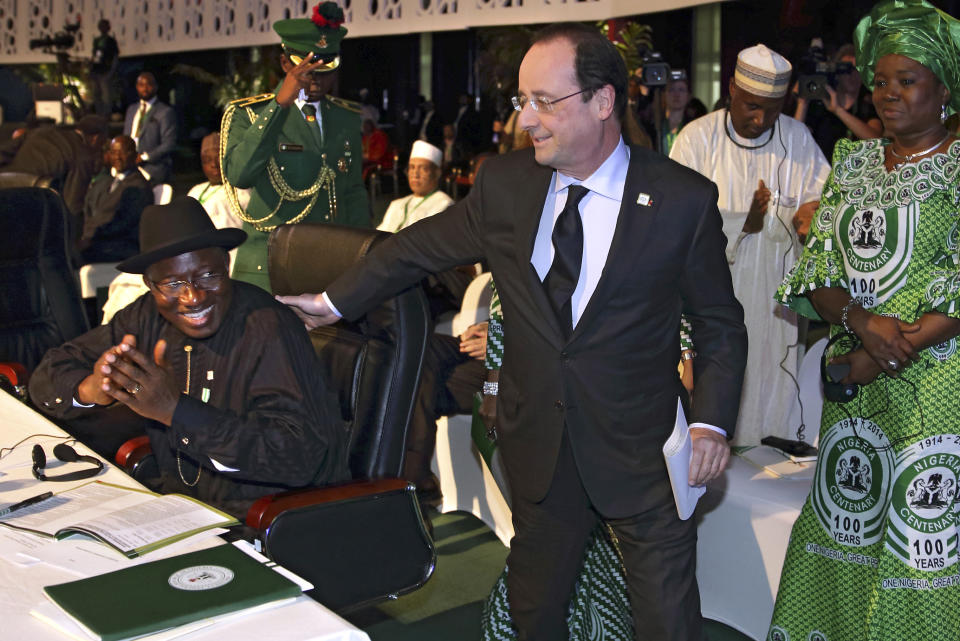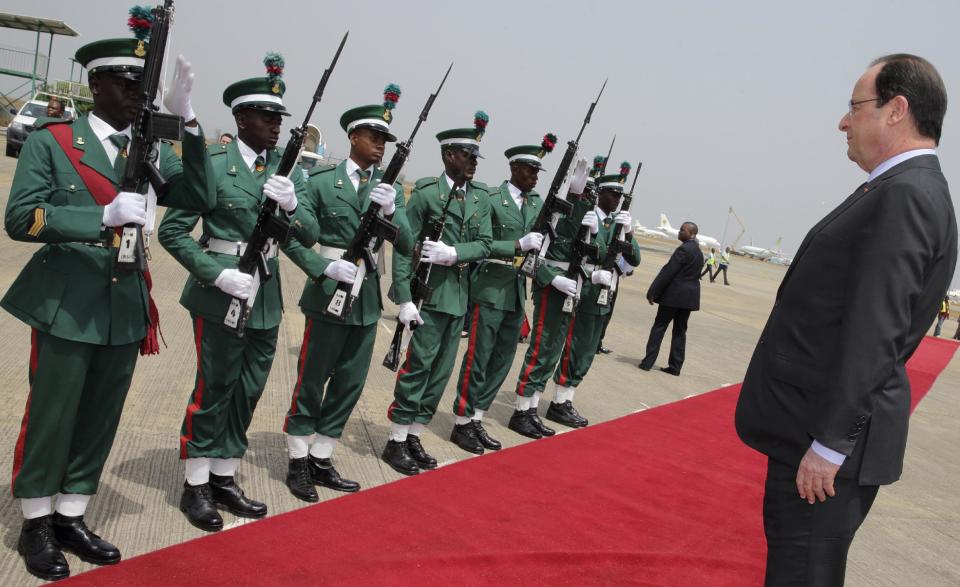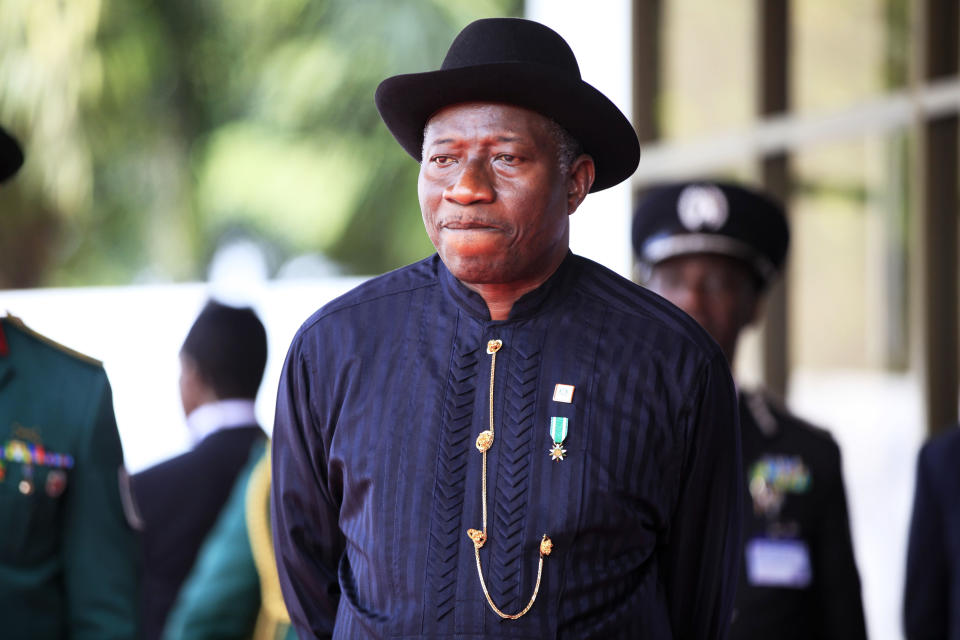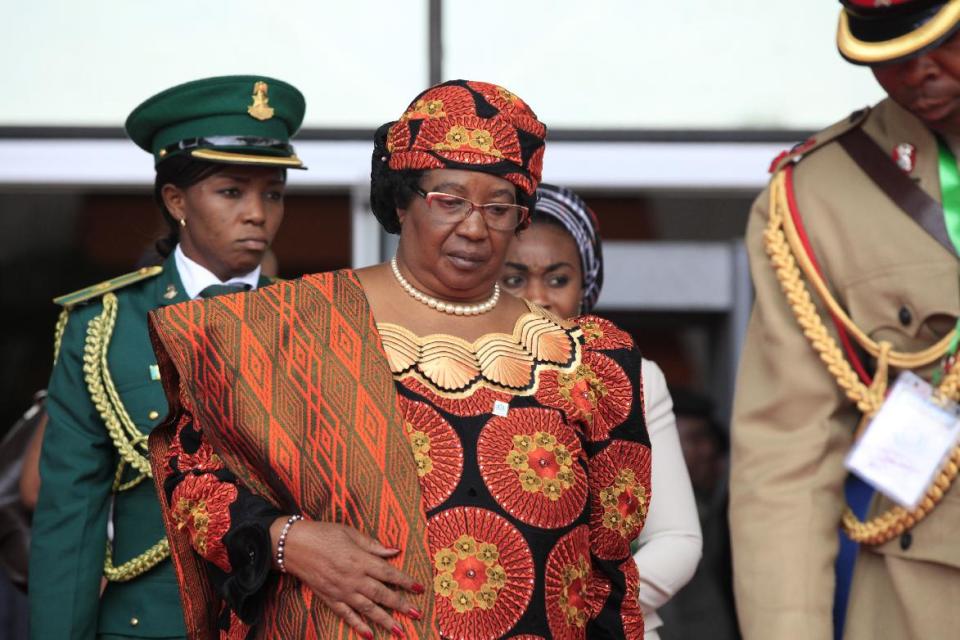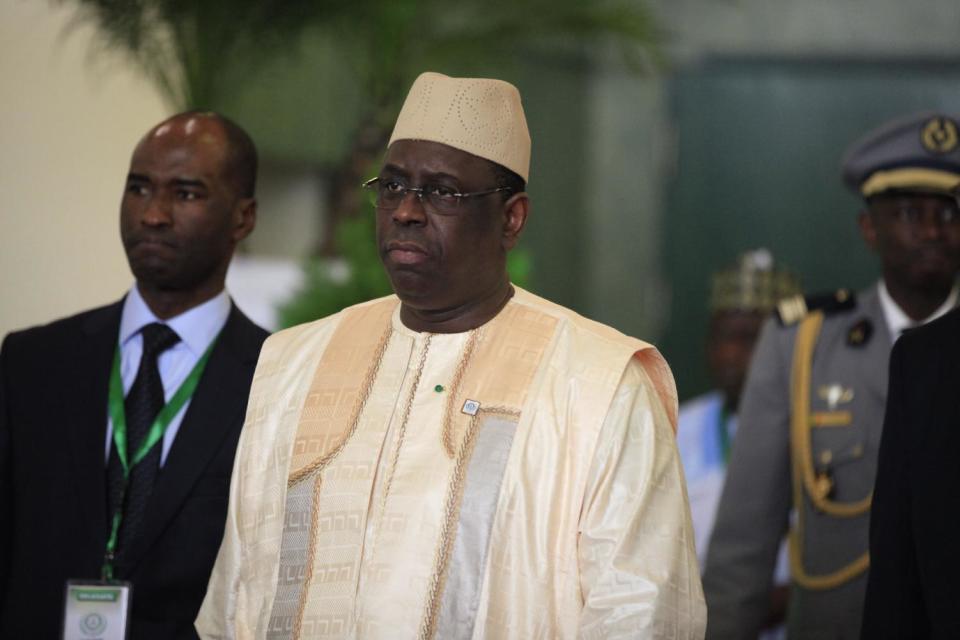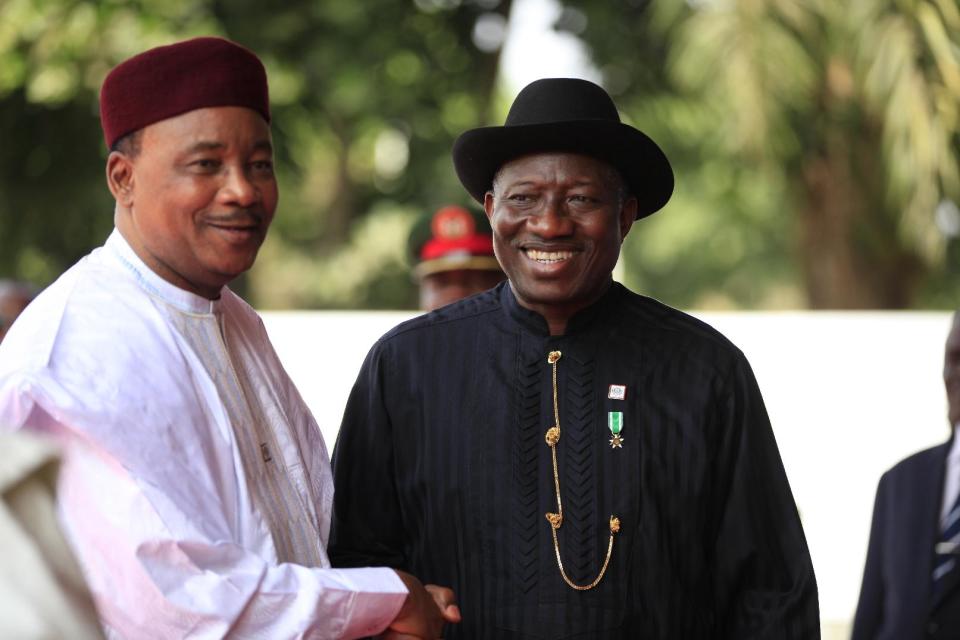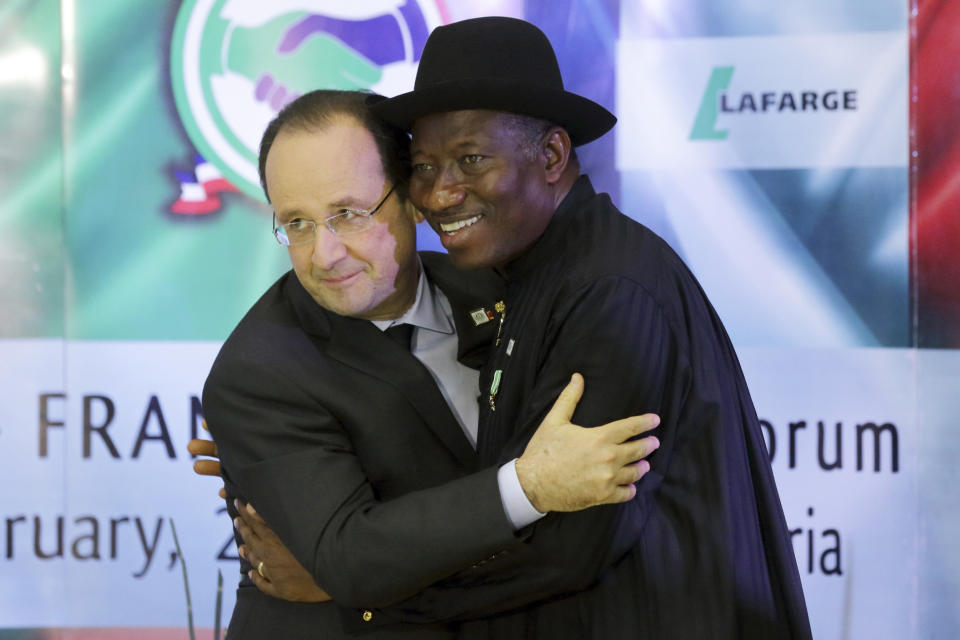Soldiers flee, 33 die in attacks in north Nigeria
YOLA, Nigeria (AP) — Outnumbered and outgunned soldiers in northeast Nigeria abandoned checkpoints, leaving five villages and a town at the mercy of Islamic extremists who killed at least 33 people and firebombed a theological college in overnight attacks that lasted hours, survivors said Thursday.
The military, which regularly downplays death tolls, said six attackers, one soldier and three civilians died.
On Tuesday, extremists killed 59 students at a school in Yobe state, hours after soldiers were inexplicably withdrawn from a roadblock set up to protect the institution.
The recent assaults in an Islamic uprising gripping the northeast of Africa's biggest oil producer comes amid widespread criticism of military failures despite a nine-month-old state of emergency.
"It is curious that under an emergency rule when security operatives are on red alert, this mayhem still persists," Senate president David Mark said Wednesday in a statement calling the attacks an "open declaration of war."
A furious Yobe state Gov. Murtala Hammanyero Nyako suggested there must be collusion with the Boko Haram terrorist network.
"Either this is controlled by unknown fellows, or unknown Boko Haram strategic commanders in the defense system, or it is being stage-managed," he told The Associated Press Thursday. During an attack on a major air force base last year, he said soldiers at nearby barracks did not respond until militants had destroyed all five aircraft at the base.
Nigeria's military has admitted arresting soldiers accused of aiding extremists. A senator also has been charged.
Brig. Gen. Chris Olukolade, the Defense Ministry spokesman, said Thursday the insurgents in Adamawa are believed to be the same men who attacked the school. He said they were escaping a new military offensive and trying to cross into Cameroon but "are still engaged in suicidal fighting ... as troops close in on the die-hard ones among them."
Nyako, a former navy chief of staff, said the attacks ridicule President Goodluck Jonathan's insistence that the military is winning the war against Islamic militants.
When Borno state Gov. Kashim Shettima warned that Boko Haram fighters are "better armed and better motivated," President Jonathan joked at a news conference Monday that he should withdraw troops from Borno for a month to see if Shettima could still stay in his state mansion. Shettima is from the opposition coalition.
Visiting African leaders condemned the attacks and expressed solidarity with Nigeria as it began official centenary celebrations Thursday marking the unification under British colonizers of the mainly Muslim north and majority Christian south.
It began with a conference on human security addressed by French President Francois Hollande, who said Nigeria's struggles are France's struggles. He pledged support for Nigeria's fight against terrorism.
The latest attacks began Wednesday night in Kirchinga village of Adamawa state, near the Cameroon border, with insurgents in a convoy of 13 all-terrain pickup trucks shooting automatic guns and rocket-propelled grenades as they lobbed firebombs into thatch-roofed huts. Villagers fled but the attackers pursued them to neighboring Shuwa town, according to survivors who requested anonymity for fear of reprisals.
"When the soldiers at the military checkpoints saw the number of the attackers, they retreated into the nearby bushes as the gunmen operated without challenge during the operation that lasted throughout the night," said a pastor in Shuwa.
Blasts from firebombs could still be heard at 2:30 a.m. Thursday, survivors said.
The pastor said soldiers hid while the assailants set numerous buildings on fire, including banks, a police station, the homes of prominent residents and a bishop, and a seminary.
Survivors said at least 33 people were killed in Kirchinga and Shuwa, but the toll is expected to rise when the dead are counted in other attacked villages.
Nigeria's military and Jonathan insist they have the upper hand in the conflict. But the increasing frequency and deadliness of attacks appear to challenge those claims — more than 300 civilians have been killed this month in the states of Borno, Yobe and Adamawa, all under the state of emergency that covers one-sixth of Africa's most populous nation.

